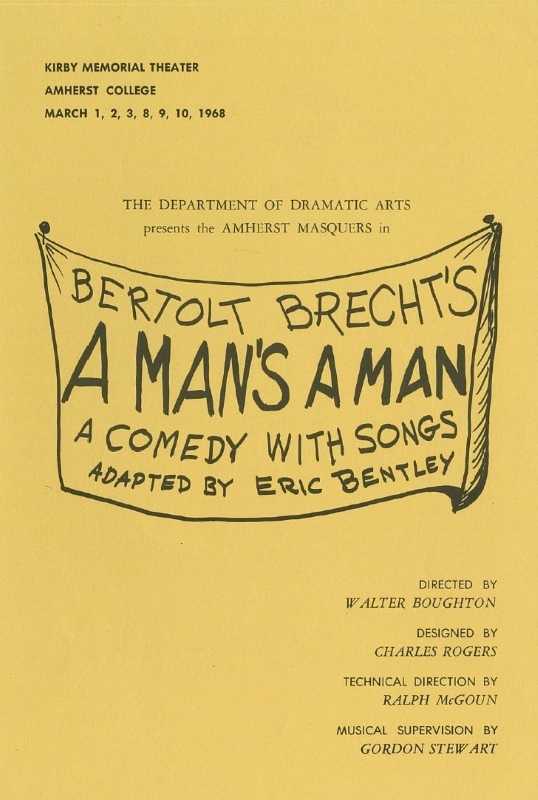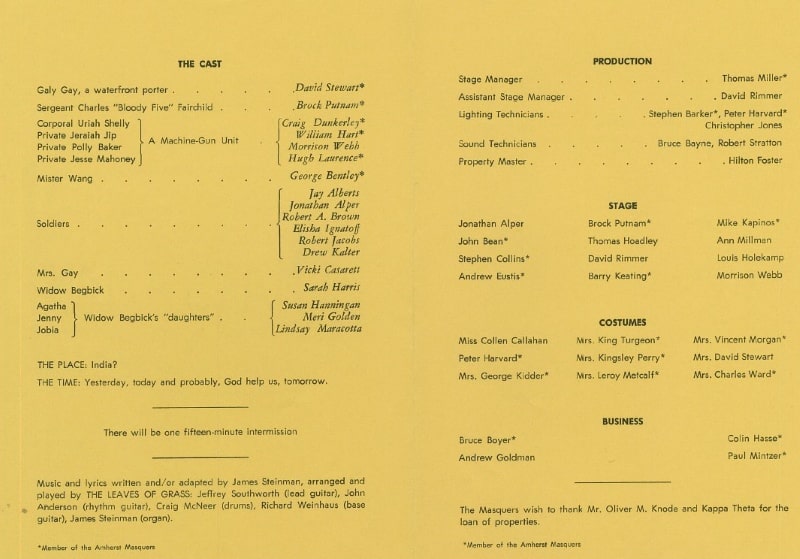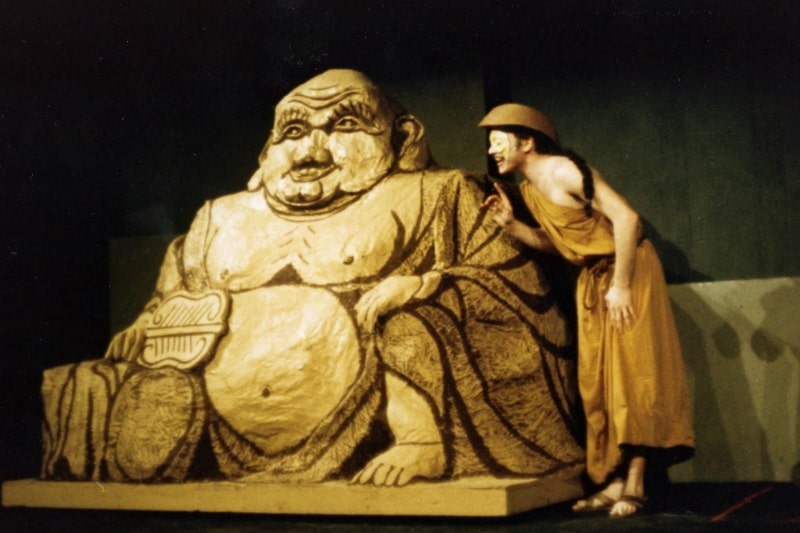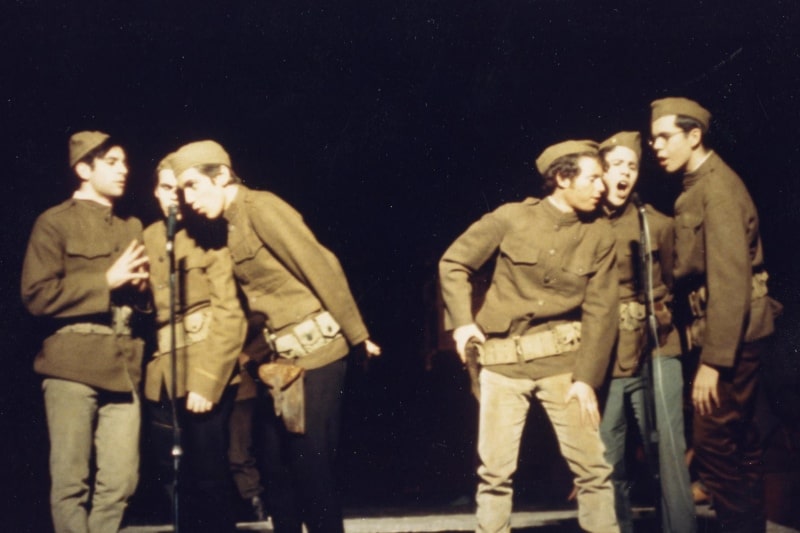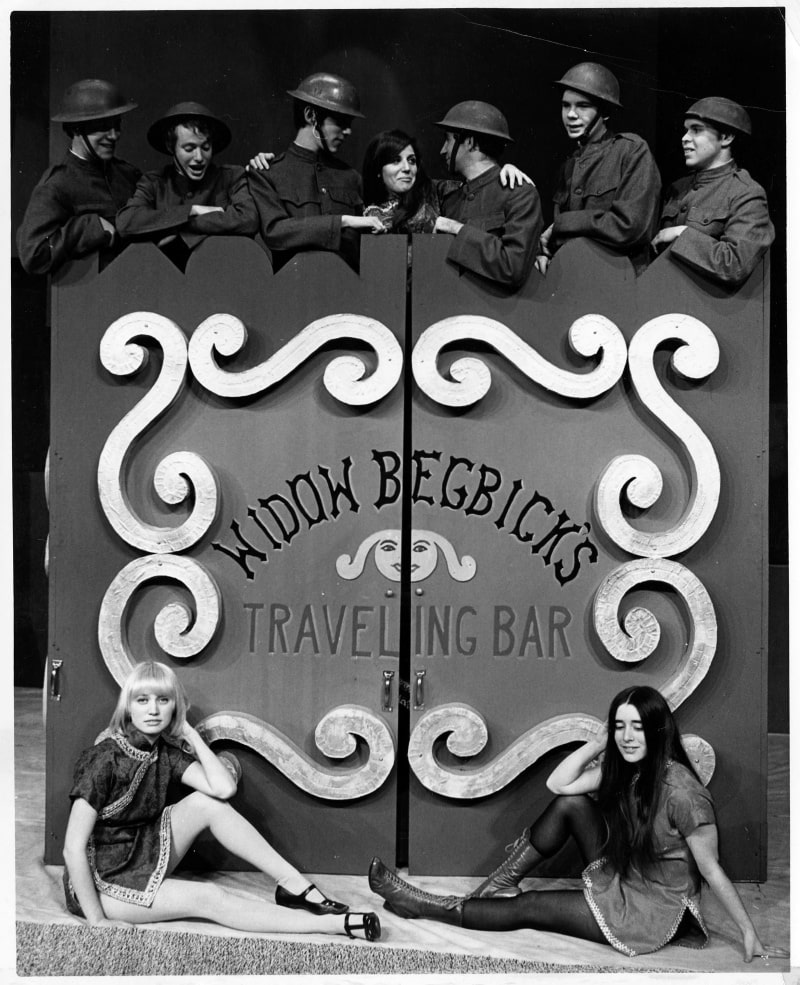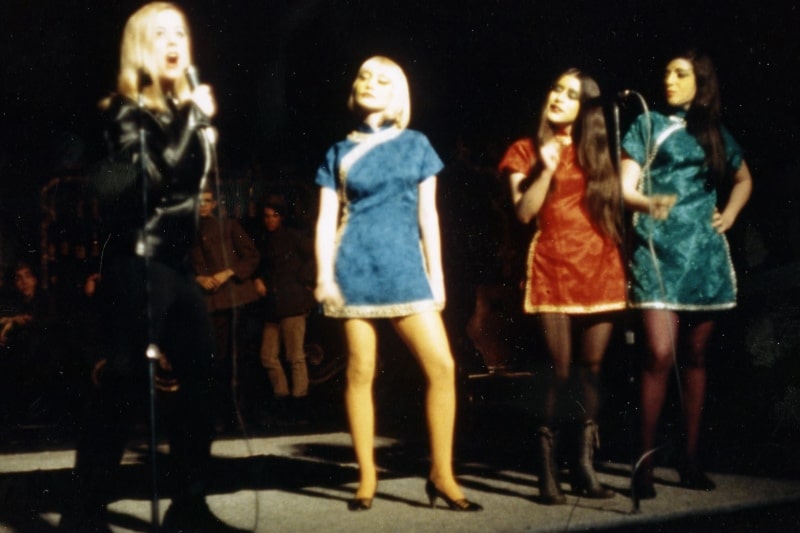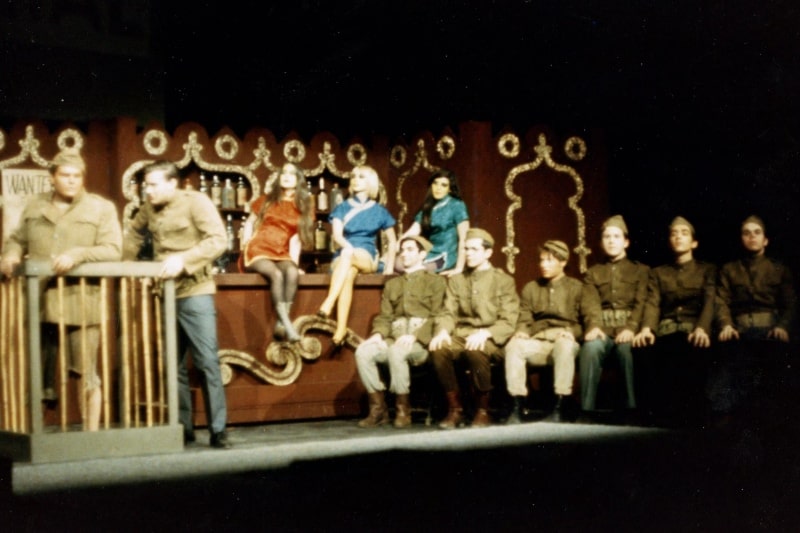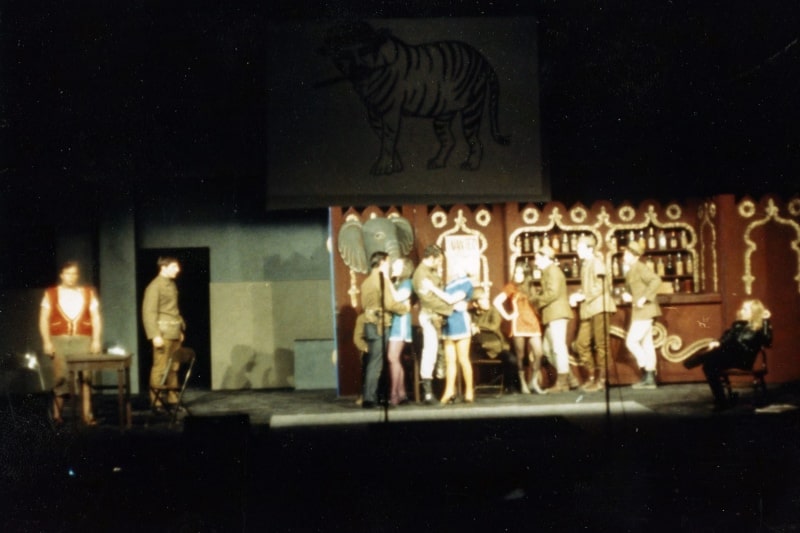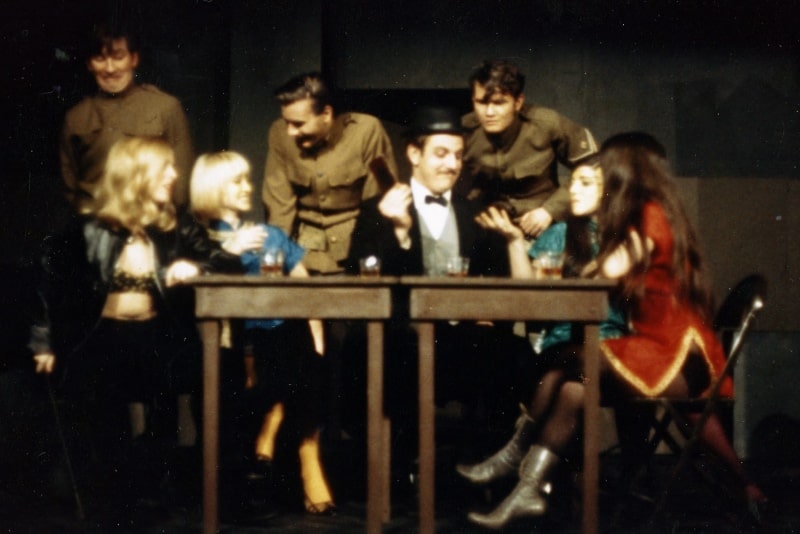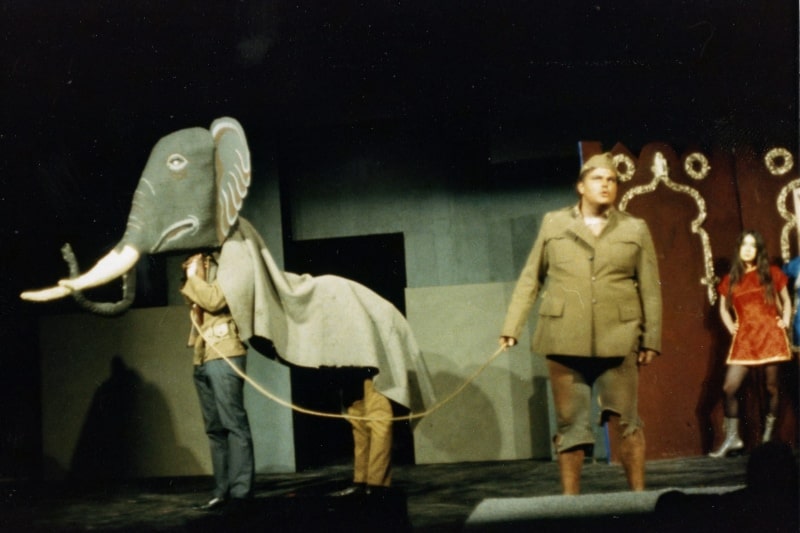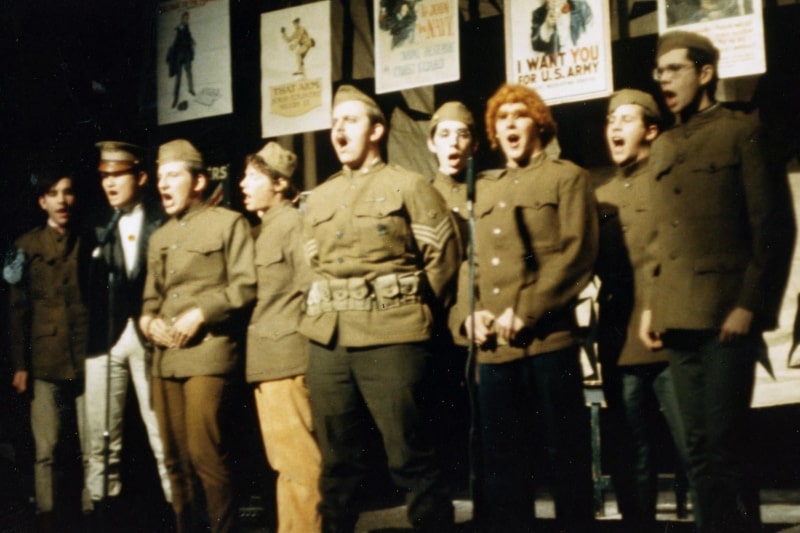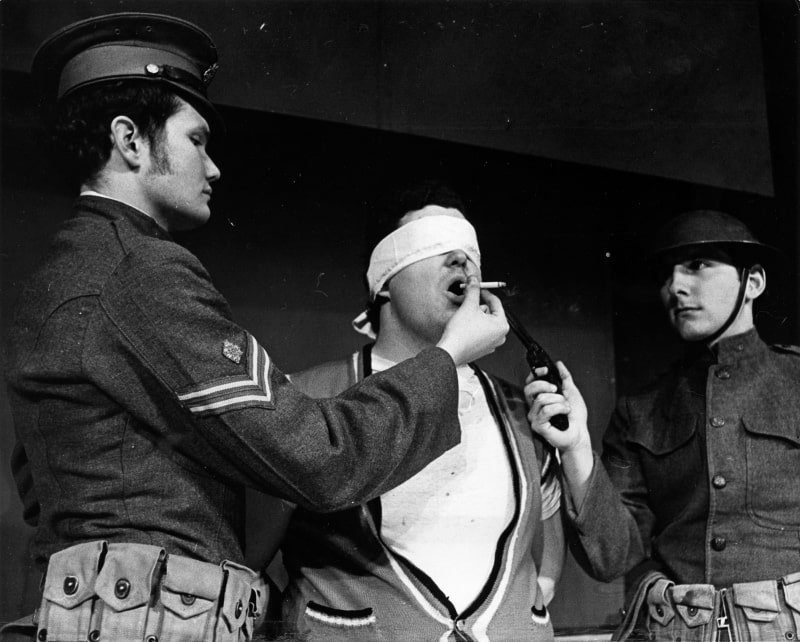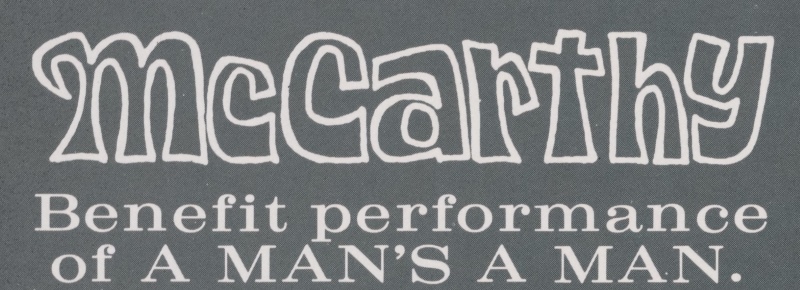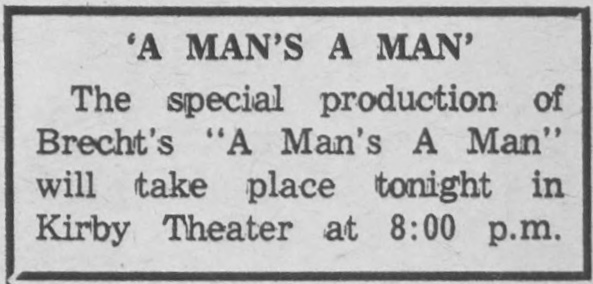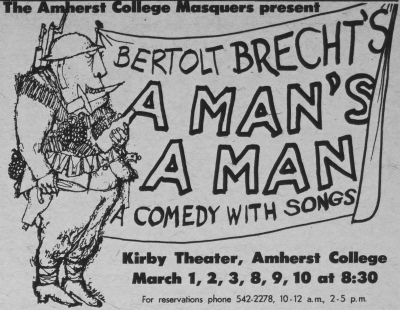
The Amherst College Masquers present
Bertolt Brecht's A Man's A Man
A Comedy With Songs
Amherst Student
Bertolt Brecht's play, "A Man's A Man," a comedy with music, will be presented at Kirby Theatre starting March 1. The play is directed by Walter Boughton and will feature a score of rock music and lyrics composed and adapted by Jim Steinman and played by "The Leaves of Grass." Included in the cast are Craig Dunkerly, Brock Putnam, Toby Webb, Hugh Lawrence, Sarah Harris, David Stewart, and Bill Hart. Tickets are now on sale.
You who live on in towns that passed away
Now show yourselves some mercy, I implore
Do not go marching into some new war
As if the old wars had not had their day
But show yourselves some mercy, I implore ...
Your mothers, to whom all men owe their breath
A war is yours to give or not to give
I beg you mothers, let your children live.
Let them owe you your birth but not your death.
I beg you mothers, let your children live.
From "To my Countrymen" by Bertholt Brecht
About the play, Eric Bentley, the translator, has written : "In one of Brecht's early plays, ‘In the Swamp,’ a man is, in effect raped by another man. In 'A Man's A Man," a play written a little later, a man is, in a social sense, raped by a group of men. ‘In the Swamp,’ we blithely say, is about homosexuality; 'A Man's A Man' is a social play, an anti-war play; but, in Brecht, the two things are one …… all Brecht's mature plays tend to present social rape, the rape of the individual by a cruel society, partly because for Brecht sex is less a psychic than a social phenomenon, and even loneliness is a matter of feeling ‘weaker than another.’ In the foreground of ‘A Man's A Man’ is the question of coercion and domination … the stronger man, the rapist, is, in the end, discomfited by the weaker, who he has ‘raped.’ After all, who is stronger, who weaker? … An archetypal modern problem: the problem of individual identity. For, though there is nothing modern in the question, ‘who am I?’, characteristically modern is the lack of ‘sense’ of identity, the feeling of I am no one, of which the feeling. I am more than one person, is a variant … An interpretation of ‘A Man's A Man’ must reach as far as the White House. Power, super-power is today offering to fill the terrible void in lives that have no true identity; but this it can never do, since power is itself a void, the supreme void. What we confront today is a lack of will to find a way out or, rather, a will not to find a way out: we tend to wish to be destroyed. But, of course, the various statesmen present this cosmic crisis to their respective peoples as a vulgar melodramatic conflict between their own High Ideals and the Low Ideals of the enemy — and this, to the universal disaster, adds a touch of the ridiculous and the obscene."
As hundreds of thousands more are called up every year for their own glorious rape, Brecht's play seems even more terrifyingly real than ever.
Source: Amherst Student archives
